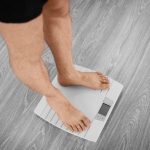
Some people mistrust the safety and effectiveness of human vaccines for COVID-19 and other diseases, a fact that became abundantly clear during the pandemic. Now, a new survey of 2,200 dog owners shows this mistrust may often extend to canine vaccinations. The finding suggests there is spillover between the issues, with those who have negative feelings about human vaccines more likely to hold these same views about vaccinating their pets, even when it comes to deadly conditions like rabies. “We knew that this phenomenon existed, but we didn’t know how prevalent it was. We didn’t know where it came from and what policy and public health implications might be, and that’s why we set out to do this research,” said Matt Motta, an assistant professor of health law, policy & management at Boston University School of Public Health, who conducted the research with his sister, Dr. Gabriella Motta, a veterinarian at Glenolden Veterinary Hospital in Pennsylvania. “A lot of our motivation for this project was born out of conversation that she and I had, her lived experience as a vet, encountering folks who didn’t want to vaccinate their pets and trying to understand why,” he explained. What they found is that nearly 40% of dog owners think dog vaccines aren’t safe. About 20% think they’re not effective. And 30% think they aren’t medically necessary. About… read on > read on >


















